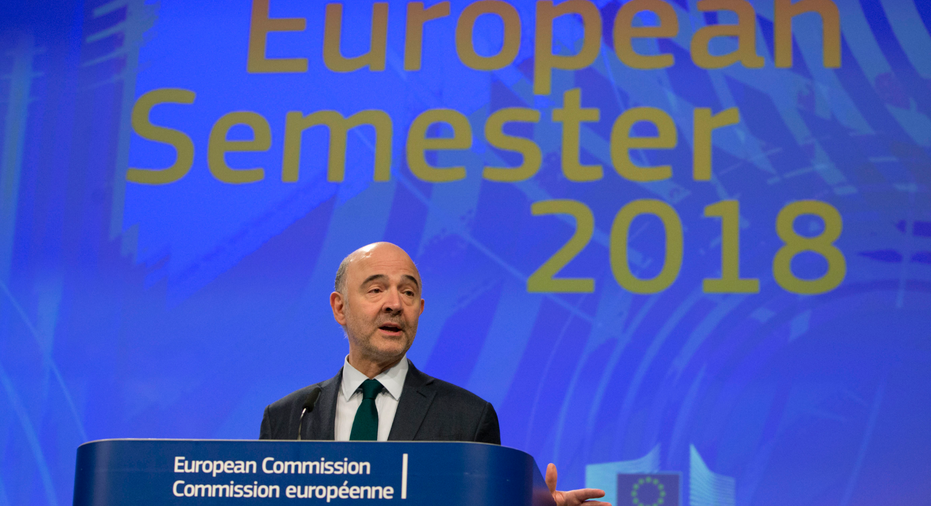EU criticizes 'aggressive' tax practices of 7 member states

BRUSSELS – The European Commission criticized seven member states Wednesday for "aggressive" tax policies designed to undercut others in the race to lure multinational companies, a censure that prompted a sharp rebuke from the leader of one of the countries named.
The European Union's executive branch pointed the finger at Belgium, Cyprus, Hungary, Ireland, Luxembourg, Malta and the Netherlands, arguing that they have tax policies that undermine the integrity of the European single market.
"These practices have the potential to undermine the fairness and the level playing field in our internal market and they increase the burden on EU taxpayers," said Pierre Moscovici, the commissioner responsible for tax policy.
"We must be sure that fair taxation becomes the rule, a rule without any exceptions, outside the EU and inside the EU," he added.
While dismissing the notion than any one country in the EU operates as a tax haven and arguing that progress is being made among the seven, Moscovici said it's imperative those named accelerate plans to amend aspects of their tax systems that undermine the credibility of the EU.
The criticism follows concern over how some countries have used their tax regimes to attract multinationals like Amazon, Facebook and Starbucks. The worry is that the companies end up paying far less tax than they should to the detriment of European taxpayers and local companies.
"The big offenders are not just distant tropical locations like Panama and Bermuda," said Sven Giegold, tax justice spokesperson for the Greens in the European Parliament.
Many campaigners think the EU should have a minimum corporate tax rate and push for a tax regime that reflects where companies earn their profits. According to the Commission, revenue losses from profit shifting within the EU— where companies report earnings from across the region in one tax-advantageous country — are estimated at between 50-70 billion euros ($62-86 billion).
Perhaps the most high-profile so-called "sweetheart deal" involved Apple. The Commission concluded in 2016 that two Irish tax rulings allowed the world's biggest company by market capitalization to pay less tax than other businesses since 1991 by registering sales across the region in Ireland at a far lower tax rate. In 2014, it said Apple paid an effective corporate tax rate of just 0.005 percent.
The Commission ordered Ireland to collect back taxes for the years 2003-2014, which it estimated to be around 13 billion euros ($16 billion). Both Apple and Ireland appealed the ruling.
For one prime minister, the criticism was unfounded, against the long-term interests of the EU.
"I think the principle of the European Union is not to point out one country now against another," Xavier Bettel, the prime minister of Luxembourg, said ahead of a meeting with Donald Tusk, the president of the European Council, which coordinates the views of the EU's 28 member states.
"It would have been more opportune and efficient to speak with the countries before and try to have an exchange on these different topics," Bettel said.
Luxembourg's tax practices have been in the spotlight recently. Last October, the Commission concluded that a tax regime in Luxembourg gave illegal tax benefits to Amazon worth around 250 million euros. Amazon, the Commission said, paid four times less tax than local companies. Luxembourg appealed the decision.
Bettel, who said his country has been at the forefront of making the EU's tax system more transparent, also objected to the idea that tax harmonization in the EU should equate to tax increases at a time when the Trump administration in the United States has slashed taxes, particularly on businesses.
"My problem now is when we speak of harmonization, what is the idea of harmonization, it's never to get down taxes, it's always how we will raise taxes up," he said.
"We should not forget that thousands of jobs also are in Europe and we might lose them if companies decide to move to the United States because they will be more efficient."
___
Pylas reported from London.



















